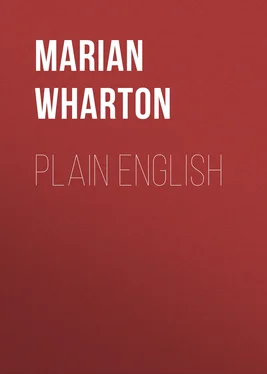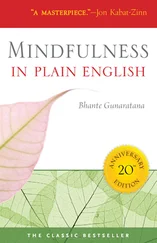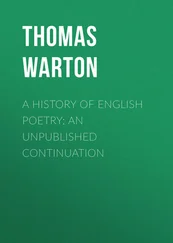Marian Wharton - Plain English
Здесь есть возможность читать онлайн «Marian Wharton - Plain English» — ознакомительный отрывок электронной книги совершенно бесплатно, а после прочтения отрывка купить полную версию. В некоторых случаях можно слушать аудио, скачать через торрент в формате fb2 и присутствует краткое содержание. Жанр: foreign_edu, foreign_language, на английском языке. Описание произведения, (предисловие) а так же отзывы посетителей доступны на портале библиотеки ЛибКат.
- Название:Plain English
- Автор:
- Жанр:
- Год:неизвестен
- ISBN:нет данных
- Рейтинг книги:5 / 5. Голосов: 1
-
Избранное:Добавить в избранное
- Отзывы:
-
Ваша оценка:
- 100
- 1
- 2
- 3
- 4
- 5
Plain English: краткое содержание, описание и аннотация
Предлагаем к чтению аннотацию, описание, краткое содержание или предисловие (зависит от того, что написал сам автор книги «Plain English»). Если вы не нашли необходимую информацию о книге — напишите в комментариях, мы постараемся отыскать её.
Plain English — читать онлайн ознакомительный отрывок
Ниже представлен текст книги, разбитый по страницам. Система сохранения места последней прочитанной страницы, позволяет с удобством читать онлайн бесплатно книгу «Plain English», без необходимости каждый раз заново искать на чём Вы остановились. Поставьте закладку, и сможете в любой момент перейти на страницу, на которой закончили чтение.
Интервал:
Закладка:
th—as in thin and worth
ce—sh as in ocean
ci—sh as in special
dg—j as in edge
gh—f as in rough
ph—f as in sylph
qu—kw as in quart
qu—k as in conquer
sh—as in shall
si—sh as in tension
si—zh as in vision
ti—sh as in motion
The use of these digraphs gives us a number of additional sounds. Notice the use of the consonants which have more than one sound and also the digraphs in the spelling lesson for the week. Mark the consonants and digraphs.
Monday
Commence
Certain
General
Gradual
Sugar
Tuesday
Soldier
Season
Pleasure
Exact
Exercise
Wednesday
Singular
Chemistry
Chapter
Machine
Changing
Thursday
Theory
Thither
Ocean
Racial
Budget
Friday
Philosophy
Enough
Quorum
Bouquet
Phonetic
Saturday
Permission
Asia
Attention
Marshall
Martial
PLAIN ENGLISH
LESSON 5
Dear Comrade:
We want to say just a word about the lesson assignment. This has been arranged on a schedule of days merely to assist you in systematizing your time and making the most of the leisure at your disposal. It is not intended that you should slavishly follow it. We thoroughly believe in individuality and all that contributes toward its development. But we are also confident that many foolish things are done in the name of liberty. Whenever we set ourselves to the performance of any task we necessarily limit our activities in some other direction. Power comes by concentration of force. Whenever we combine with others for the accomplishment of any purpose, it becomes necessary to have some plan of action and we give and take for the end which we have in view. The musician because he follows the law of harmony in music has not given up his liberty. He has only found a new freedom which enables him to make glorious music where only discord reigned before. System in our work does not mean loss of liberty or of individuality but only finding a channel through which individuality can flow into the great ocean of real freedom.
So use this suggestive lesson assignment to meet your own need and find expression for your real individuality in full freedom.
This is the first of several lessons concerning verbs. The verb is perhaps the most difficult part of speech to thoroughly master, so do not be discouraged if there are some parts of this lesson you do not understand. Succeeding lessons will clear up these difficult points. Keep your eyes open as you read every day, and be careful of your spelling and pronunciation.
Some of us mis-spell the common words which we see and use every day. In a student's letter we recently noted that, with our letter before him in which the word was printed in large type and correctly spelled, he spelled College, Colledge .
Do not be satisfied with half-way things or less than that which is worthy of you. Demand the best for yourself. Read aloud this little verse from the Good Grey Poet, Walt Whitman:
"O, the joy of a manly self-hood;
To be servile to none, to defer to none, not to any tyrant known or unknown,
To walk with erect carriage, a step springy and elastic,
To look with calm gaze or with a flashing eye,
To speak with a full and sonorous voice out of a broad chest,
To confront with your personality all the other personalities of the earth."
THE WORD THAT ASSERTS
93.You remember when we studied sentences we found that we could not have a sentence without a verb or a word that asserts. The life of a sentence is the verb, for without the verb we cannot assert, question or command. It was on account of this importance that the Romans called the verb, verbum , which meant the word. Verbs, like nouns, are divided into classes.
94.In some of our sentences the verb alone is enough to make a complete assertion, but in other sentences we use verbs that need to be followed by one or more words to complete the assertion. Notice the following sentences:
The boy ran.
The boy found the ball.
The earth revolves.
The earth is round.
Do you notice any difference in the verbs used in these sentences? Notice that the verbs ran and revolves make the complete assertion about their subjects. Notice the verbs found and is . These are not complete without the addition of the words ball and round . If we say The boy found , The earth is , you at once ask, The boy found WHAT? The earth is WHAT? The sense is incomplete without the addition of these words ball and round . A part of the thought is unexpressed; but when we say The boy found the ball , The earth is round , the sense is complete.
So we have two classes of verbs, COMPLETE AND INCOMPLETE VERBS .
95. An incomplete verb is one that requires the addition of one or more words to complete its meaning.
The word or words added to an incomplete verb to complete its meaning are called the complement.
A complete verb is one that requires no complement to complete its meaning.
96.You can readily tell when a verb is complete and when it is incomplete by asking the question What? If you put the question what after the verb, and it makes a sensible question the verb is incomplete . For example:
Farmers raise— what?
The employer discharged— what?
We were— what?
The earth is— what?
If the question what? does not make sense after the verb, then the verb is complete . For example:
The sun shines.
Water flows.
Men work.
The question what after these verbs would not make sense, as:
The sun shines— what?
Men work— what?
Water flows— what?
So these verbs are complete verbs.
97.The same verb, however, may be complete or incomplete, according to the way in which it is used. For example:
The corn grows.
The farmer grows corn.
In the sentence, Corn grows , grows is a complete verb. You could not say The corn grows—what? for it does not grow anything. It merely grows, and the verb grows in this sense is a complete verb. But in the sentence, The farmer grows corn , you are using the verb grows in a slightly different sense. It is an incomplete verb , for you do not mean, The farmer grows , but you mean that the farmer grows CORN .
Exercise 1
In the following sentences, underscore the complete verbs with one line, the incomplete with two lines. Ask the question what? after each verb to determine whether it is complete or incomplete.
He returned today.
He returned the book.
The rose smells sweet.
He smelled the rose.
The trees shake in the wind.
The wind shakes the trees.
The ship plows through the waves.
The farmer plows the field.
The birds sing sweetly.
They sang the Marseillaise.
He worries over the matter.
The matters worry him.
The table feels rough.
Читать дальшеИнтервал:
Закладка:
Похожие книги на «Plain English»
Представляем Вашему вниманию похожие книги на «Plain English» списком для выбора. Мы отобрали схожую по названию и смыслу литературу в надежде предоставить читателям больше вариантов отыскать новые, интересные, ещё непрочитанные произведения.
Обсуждение, отзывы о книге «Plain English» и просто собственные мнения читателей. Оставьте ваши комментарии, напишите, что Вы думаете о произведении, его смысле или главных героях. Укажите что конкретно понравилось, а что нет, и почему Вы так считаете.












